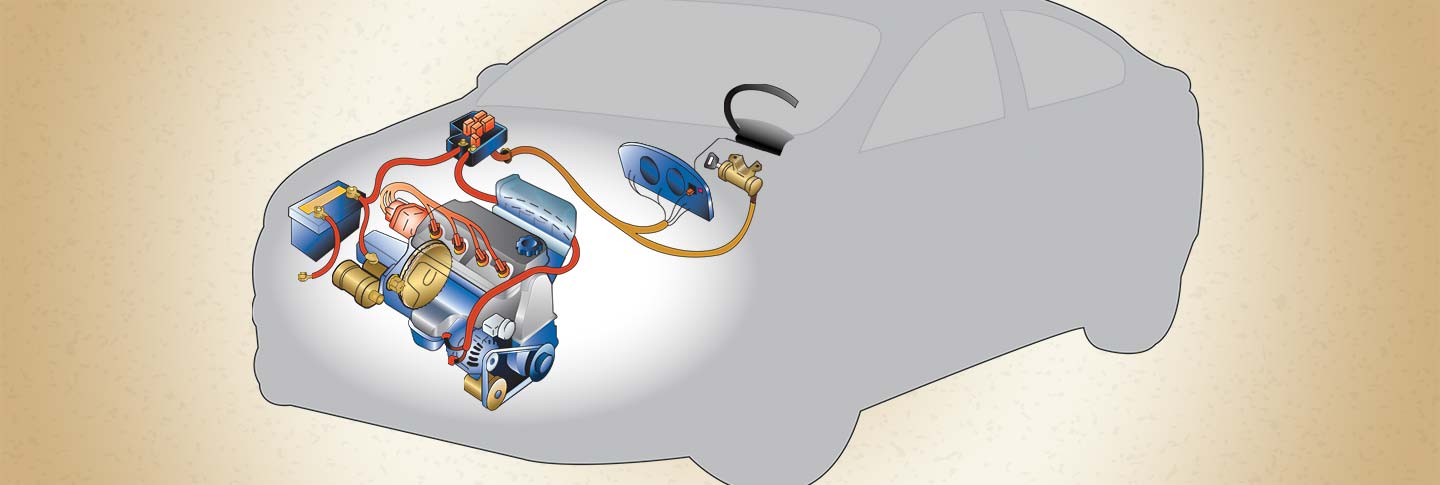

No car has ever broken down at the “right time”. Whether you’re sitting in a car that won’t start, or preparing for the future, this article will help you figure out what’s wrong with your car!
It is very easy to assume the worst or immediately suspect that your battery died. After reading this article, hopefully, you will be able to know if the issue is a faulty battery, starter, or alternator. These three parts of a vehicle work very closely together, therefore it can be hard to tell which of the three is the culprit. Let’s take a closer look at each of their roles so it will be easier to diagnose which of the three has failed.
What Do the Battery, Alternator, and Starter Do?
An auto battery supplies an electric charge that turns over the starter, converting chemical energy into the electrical energy necessary to power your car. Once the car is running, the alternator sends the current back to recharge the battery as you drive and makes sure the right amount of charge goes back to the battery. Your starter is vital to your car because it is responsible for starting the engine. The battery sends it a jolt of electricity, which the starter uses to turn the engine over and get it to start. A car battery should last about four to five years. It is not made to hold a charge for that long, which is why it gets recharged by the alternator while you drive. Over time, the internal metal parts of a battery corrode, reducing its ability to hold a charge.
Now that you know the three different parts that could each be the reason your car won’t start, always begin by checking the battery first. The battery is most often the part that failed.
Signs the Battery is Dead:
When you attempt to start the vehicle:
- The Check Engine Light is On
- The Engine is Slow to Start
- There is a Low Whining Sound
- Headlights Turn On but No Start
- Odd Smell Coming from Your Battery
- Swollen Battery Size
What to Do if Your Battery is Dead
If you do have cables, try jump-starting your car. If this gets the engine running, then you know you’ve got a battery problem. In this case, the alternator is doing its job of keeping the battery going once it has been jumped, but the battery can’t hold a charge. If you notice it is the battery that is the issue, either jump start your car if you have cables, or get it towed over and our certified technicians will inspect the starting and charging systems of your vehicle. We will be able to tell you whether it’s simply at the end of its life or there are underlying issues. A dead or low battery can be caused by a failing alternator. It can also result from additional use of auxiliary lights, fuses, sound systems, etc.
Signs the Alternator is the Problem:
- You Hear a Growling or Squealing Noise
- You Smell Burning Rubber
- Dash Lights are Flickering
- Gauges are Behaving Strangely
What Do I Do If My Vehicle’s Alternator is Failing?
If you jump start your car and it starts, but the engine dies right after the jump then the problem is most likely the alternator. (Note: Do not try to test the alternator by removing the negative battery cable with the engine running. This could damage your car or truck’s electrical systems). The battery will still lose its charge because the alternator isn’t keeping it charged. Since jump-starting your car will not work, get your vehicle towed to Luke’s Auto Service in Verona, NJ and we will be able to perform a proper diagnosis.
Signs Your Starter is Broken:
- Smell or See Smoke When Starting the Motor
- Clicking Sound When You Turn the Key
- Dash Lights Come on but Engine Won’t
What Do I Do if My Vehicle’s Starter is Failing?
If you have cables and try jump-starting your car or truck, the engine will not turn over at all if the starter is the issue. Electric motors and repeated engagement of the gears eventually wear out. Since you will not be able to jump-start your vehicle, get it towed to us and we will be able to diagnose the issue for you!
Be Sure to Proceed with Caution
It is best to contact a professional such as a roadside assistance company as opposed to jumping your battery yourself or asking another motorist to assist you. Jump starting your vehicle, if not done correctly, can cause a surge in power which could damage electrical components, including the main computer.
After reading this article, we hope that the next time you notice your car is struggling to startup, you can be confident in knowing if the battery, alternator, or starter is the issue. At Luke’s Auto Service in Verona, New Jersey, we understand that having a start-up issue can never come at a convenient time. That is why our technicians will be happy to diagnose and fix such issues so you can get back on the road again! With over 60 years in the family-owned business, you can be confident in knowing your vehicle will be properly cared for!
References:
